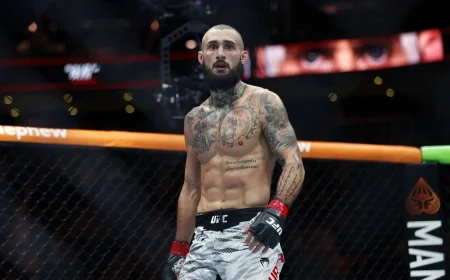FanDuel Sports Network Expands to Denver: Workers Raise Concerns Over Impact on Broadcast Quality

FanDuel Sports Network Announces Relocation of Production Roles to Denver, Sparking Concerns Among Crews
FanDuel Sports Network, a major player in broadcasting baseball, basketball, and hockey across the United States, is moving some of its production jobs to a new hub in Denver. This decision, aimed at reducing operational costs, has raised alarm among sports television crews, who fear a decrease in the quality of their telecasts.
Concerns Over Broadcast Quality Amid Relocations
Anonymous sources from within FanDuel Sports Network have expressed their worries regarding the potential impact of this relocation on broadcast quality. Traditionally, FanDuel’s broadcasts are produced from trucks stationed close to the game venues, allowing for real-time coverage and interaction. A graphics operator within the network voiced concerns saying, “I truly believe it will affect the quality of our broadcasts in a significant way, and that won’t be welcomed by our viewers.”
Background on FanDuel Sports Network’s Recent Challenges
The announcement comes less than a year after FanDuel’s parent company, Main Street Sports Group, emerged from a challenging bankruptcy process. In that time, the company has reorganized its financial structure while renegotiating broadcasting rights with various leagues to stabilize costs. However, Norby Williamson, President of Production and Programming at Main Street Sports Group, insists that the initiative is part of a broader modernization effort seeking to enhance viewer experience.
Williamson emphasizes that the new Denver facility will incorporate advanced technology, allowing for improved production capabilities. “We’re trying to create a modernization hub,” he stated, adding, “More technology, more personnel, and more enhancements will ultimately lead to improved broadcasts.”
Potential Benefits and Job Opportunities for Relocated Staff
The relocation plan includes both freelance and full-time positions, with the latter becoming available to certain freelancers who are willing to relocate. Some employees view this as a significant opportunity for career advancement, according to Williamson, who spoke of conversations with staff members excited about the prospect of full-time employment in Denver.
Union Concerns and Job Security Issues
Despite the optimistic outlook from Williamson, the International Alliance of Theatrical Stage Employees (IATSE), which represents many production workers, remains skeptical. The Denver roles are primarily provided through third-party vendor Mobile TV Group, which are not union positions.
Steve Belsky, co-director of IATSE’s broadcast department, noted the widespread concerns among FanDuel SN workers. He pointed out that while some positions moved to Denver come from non-union markets, the implications of this move are being closely monitored by freelancers across the industry.
Impact on Televised Sports: A Closer Look
This relocation will directly impact the telecasts of eight teams in FanDuel’s network, including five NBA teams: the Atlanta Hawks, Memphis Grizzlies, Minnesota Timberwolves, Oklahoma City Thunder, and San Antonio Spurs, as well as three NHL teams: the Minnesota Wild, Carolina Hurricanes, and Nashville Predators. The relocation involves critical roles such as:
- Replay operators
- Score bug operators
- Graphics operators
Concerns have arisen about the potential for centralized production leading to technical challenges, such as audio and video sync issues during broadcasts. With FanDuel controlling a substantial portfolio of teams across NBA, MLB, and NHL, the fear is that this relocation model could become a blueprint for future cost-cutting measures in sports broadcasting.
Future Implications and Industry Trends
Industry insiders speculate that if this centralization proves successful, it could prompt other networks to follow suit. Williamson, drawing from his extensive experience at ESPN, advocates for a more centralized broadcasting model, stating, “Technology allows this to happen, and it’s not a new phenomenon for FanDuel Sports Network.”
Negotiations between IATSE and FanDuel SN are ongoing. Recent agreements have been reached for a one-year contract extension covering specific markets. However, uncertainty looms over the future of many freelancers, as not all will find it feasible to transition to Denver, and job security remains a concern.
In conclusion, while FanDuel’s move to establish a Denver production hub promises modernization and resource investment, it simultaneously stirs apprehensions regarding broadcast quality, job security, and the potential for a shift in industry practices that could redefine sports production moving forward.
































